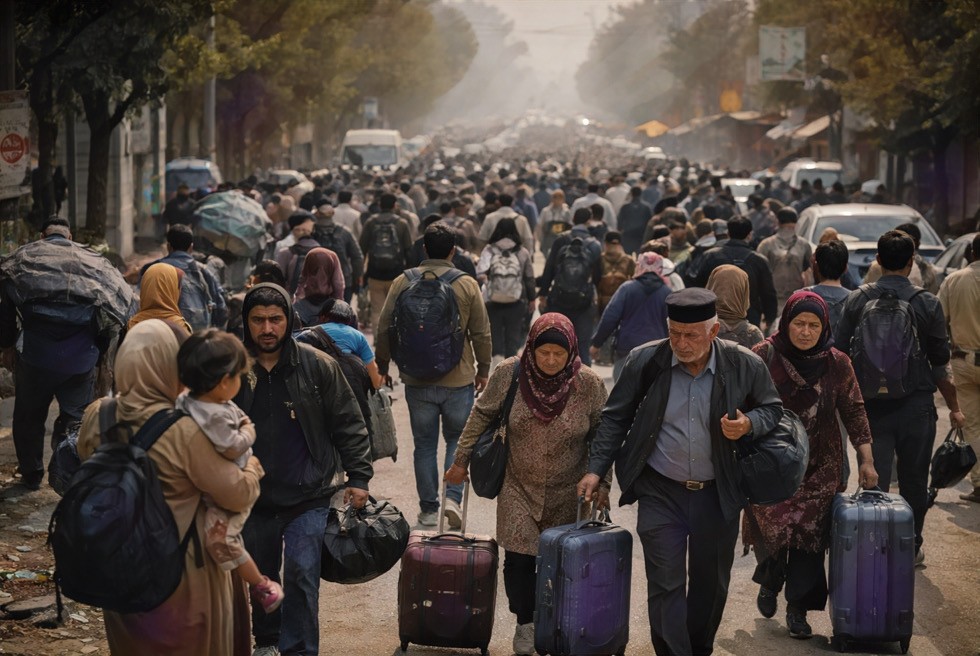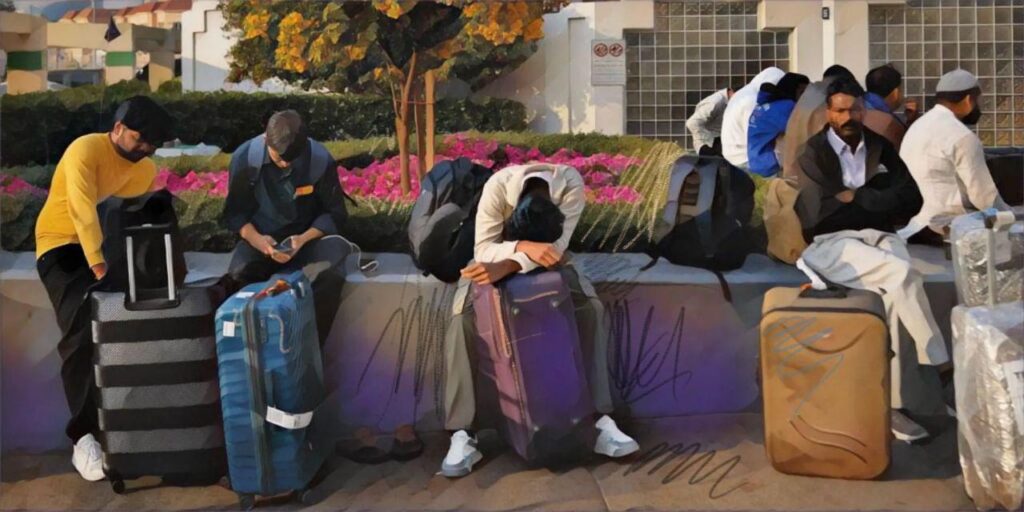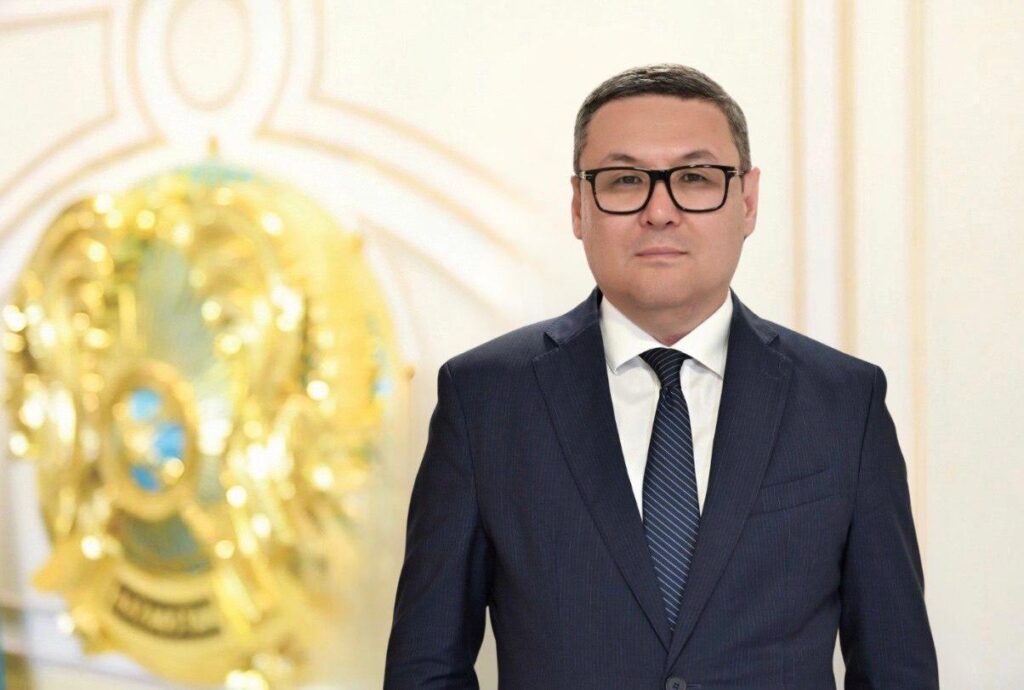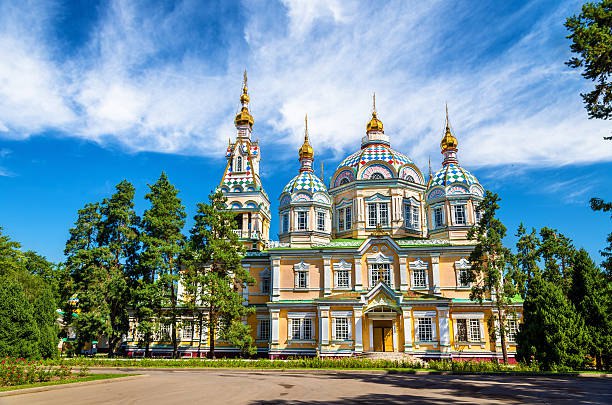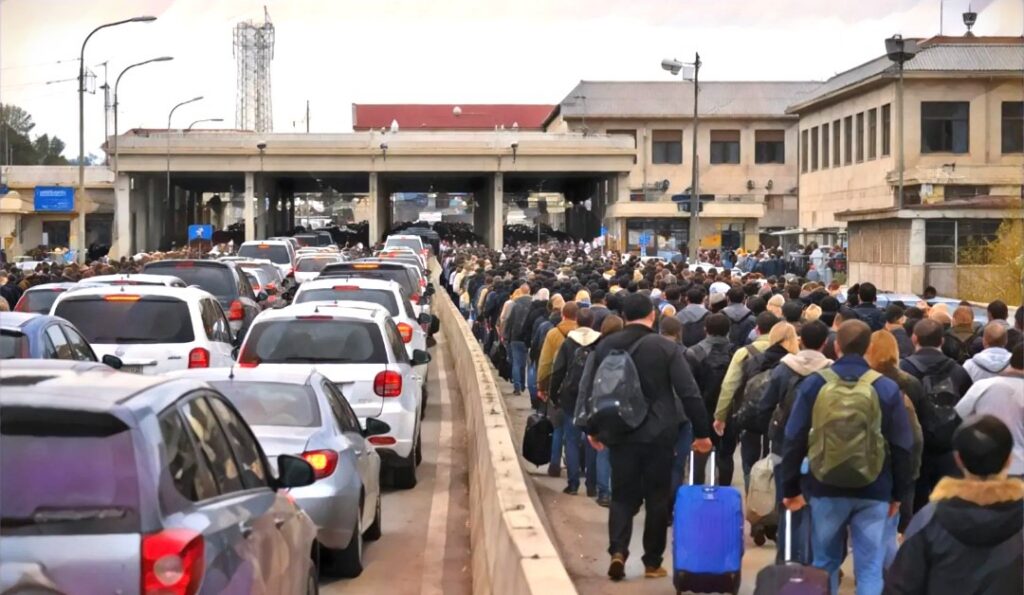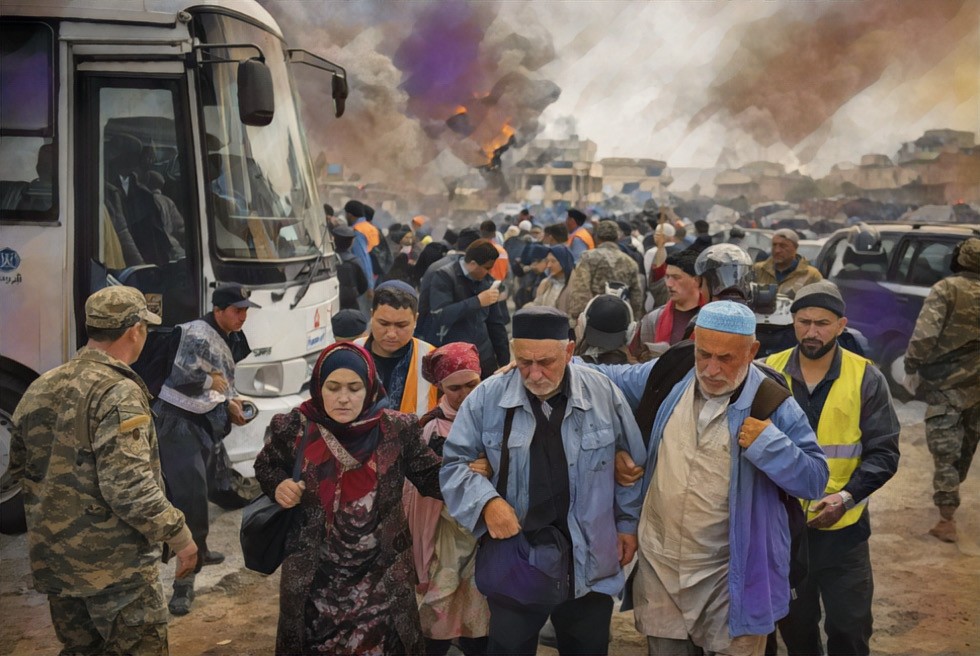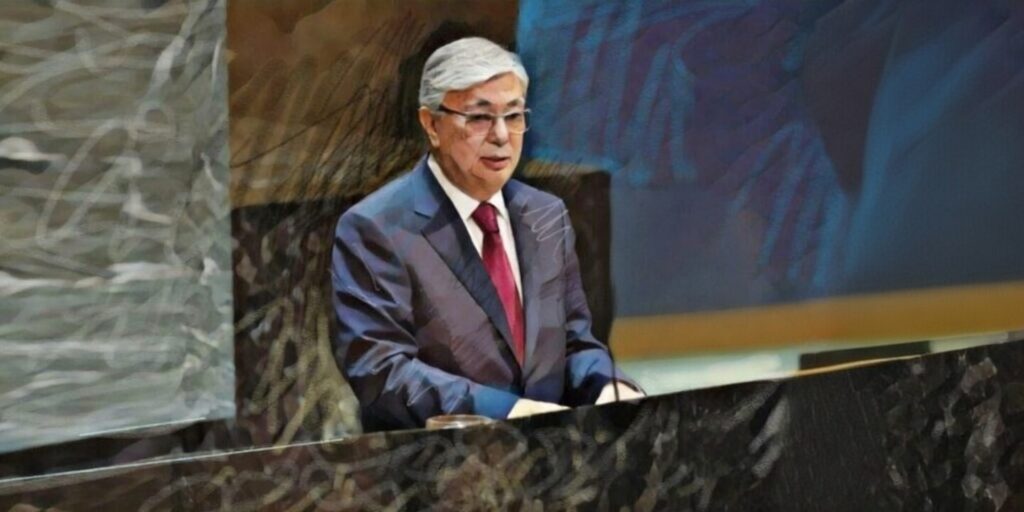Speaking on June 27 on the eve of Media Workers Day at a reception where awards were presented to distinguished journalists, Kazakh President Kassym-Jomart Tokayev paid special attention to the powers of the head of state. Tokayev emphasized that the term of presidential powers approved in the referendum is a reality that will not be altered through amendments to the Constitution. This means that in 2029, Kazakhstan will see a new president, chosen through a legal expression of its citizens’ will.
This new president will not appear out of nowhere; they will likely be nominated by one of the existing political parties, which will enter the electoral battle for the Mazhilis deputy mandates in 2028. The party leading this significant two-year electoral race will have its nominee occupy the presidency of Kazakhstan.
The topic of the “problem-2029” is already a subject of discussion within the corridors of power. The current president’s team has a dual task – ensuring the continuity of democratic and liberal transformations while preventing a resurgence of the Old Kazakhstan. Having been unable to change the country’s leadership in 2022, Tokayev’s opponents will likely pursue an institutional route. Historically, former president Nursultan Nazarbayev used a similar strategy, having first elected democratically, then extending his powers via a referendum, and gradually amending the Constitution to consolidate his rule without seeking further public approval.
Could a current political party be used as a Trojan horse in such a scenario? Here are the players on the present political landscape.
Amanat
The most influential party in Kazakhstan, Amanat, which formerly supported Elbasy (Father of the Nation) Nursultan Nazarbayev, was founded in 1999 through the merger of several political organizations, with the largest being the Party of People’s Unity of Kazakhstan (PNUK). Known as Otan and then Nur Otan (“Radiant Fatherland”) until it was rebranded in 2022, although modern sources attribute this merger to Nazarbayev, he was reportedly not focused on party building at that time.
The Otan party, which resulted from the merger, emerged shortly after the early presidential election of 1999, where Nazarbayev won with a “modest” 80.97% of the vote. The runner-up in the election, Serikbolsyn Abdildin claimed that there had been widespread voter fraud and a failure to tally ballots properly, whilst the U.S. Department of State commented that the undemocratic nature of the election “cast a shadow on bilateral relations”.
In 2006, Otan held two congresses, during which three more political organizations joined: the Asar Party, founded by Nazarbayev’s eldest daughter Dariga and her then-husband Rakhat Aliyev, as well as the Civic and Agrarian Parties, previously part of the AIST pre-election bloc. Following these mergers, Otan was renamed Nur Otan. After Rakhat Aliyev was charged, initially with the kidnapping and then with the murder of two executives at a bank he controlled in 2007, Dariga and her son took over his stake, swelling her fortune. In 2013, Forbes named her one of the fifty richest Kazakhs with assets of US$595 million, including a vast media empire.
Under Nazarbayev’s rule, Nur Otan was seen as a puppet outfit for the use of the head of state. This theory was disproven, however, by Tokayev, who initiated accelerated democratization after the events of January 2022 events and quit the Nur Otan party, which was subsequently renamed Amanat. Historically, “amanats” referred to the children of high-ranking persons taken hostage for safekeeping, similar to the Turkish practice of the Janissaries.
Despite Tokayev’s departure, Amanat did not disintegrate. In fact, it became more active and remains the most influential party in the country. Currently, it holds 62 out of 98 seats in the Parliament of Kazakhstan and has a majority in almost all local representative bodies, the Maslikhats. The party is led by the speaker of the Mazhilis, Yerlan Koshanov, and holds 62 of the 98 seats in the Mazhilis.

Campaign posters, Astana, March 2023; image: TCA, Stephen M. Bland
The Democratic Party of Kazakhstan “Ak Zhol”
The Ak Zhol party was registered with the authorities in April 2002. Less than six months earlier, in November 2001, Kazakhstan had experienced its first serious political crisis as a result of a split within the ruling elite. The exact roots of the crisis remain unclear, but it appears to have stemmed from a conflict of interest among a group of reformist bureaucrats, including Galymzhan Zhakiyanov, the former akim of the Pavlodar region, Oraz Zhandosov, the former deputy premier, and Mukhtar Ablyazov. Today, none of the key figures from that revolt hold any significant power or business influence, with Ablyazov, a former banker turned blogger, being the most notable.
Ak Zhol was founded by the politicians Bulat Abilov, Oraz Zhandosov, and Alikhan Baimenov, who split from the core group involved in the Democratic Choice of Kazakhstan movement. The party’s name, Ak Zhol, meaning “The Bright Path,” is the battle cry of the Kazakh Argyn tribe.
The party later underwent many factional splits. Currently, Ak Zhol is headed by Azat Peruashev, former chairman of the Civic Party of Kazakhstan. Despite supporting Tokayev in the 2022 election, it positions itself as a parliamentary opposition, focusing on defending businesses from arbitrary state actions. Currently, Ak Zhol holds six of the 98 seats in the Mazhilis.
The People’s Party of Kazakhstan
The People’s Party of Kazakhstan originally emerged in 2004 as the People’s Communist Party of Kazakhstan (PCK) following a split in the Communist Party of Kazakhstan, led by former Supreme Soviet speaker Serikbolsyn Abdildin. As Communism waned, the party dropped the adjective from its name. Ermukhamet Ertisbaev, a former advisor to Nazarbayev and former Minister of Information, now leads the party. Ertisbaev has been at the center of multiple scandals, often involving the expulsion of party members. The PCK supported Tokayev in the 2022 election, and currently holds five of the 98 seats in the Mazhilis.
The People’s Democratic Patriotic Party, “Auyl”
Recently, the Auyl party revised its statutes to focus on the rural electorate, with its congress being convened in the village of Zerenda, Akmola region, to adopt a new, more specialized program focused entirely on the village and its inhabitants. Political scientist Marat Shibutov commented on this development: “The new program marks a crucial shift from generic promises to a targeted approach. The party needs its dedicated electorate to provide stable support, allowing it to send representatives to local authorities and parliament. The congress’s rural setting and emphasis on village development, agriculture, tourism, and conservative values signify this strategic pivot. We will see how voters respond to this.”
In the 2023 Kazakh legislative election, the Ayul party secured 10.90% of the vote, earning 8 seats. This marked the first time in the party’s history that it was able to enter the Mazhilis.
The Nationwide Social Democratic Party
There is a certain overlap between the creation of the Nationwide Social Democratic Party (NSDP) and the current trends voiced by Tokayev. The NSDP was formed in 2006 based on the movement “For a Just Kazakhstan,” which had previously nominated former Mazhilis speaker Zharmakhan Tuyakbay as a presidential candidate.
For a long time, the party positioned itself as an opposition force, occasionally boycotting elections citing a lack of change in the country. Currently, it has four representatives in the Mazhilis.
The Green Party “Baitak,” and Respublica
Two new parties emerged after the bloody events of January 2022. The Greens failed to get into the lower house of parliament, while Respublica – founded by Aidarbek Qojanazarov – has six representatives in the Mazhilis, making it the third largest faction. Created by entrepreneurs, Respublica rivals Ak Zhol in representing the pro-business sphere.

Azamathan Ämirtai, founder and Chairman of Baytaq (Green Party); image: TCA, Stephen M. Bland
In the shadows
Given the right circumstances, any of the above parties, including Amanat and Ak Zhol, could potentially be co-opted as vehicles for representatives of Old Kazakhstan to return to power. So far, there have been no indications of this happening. However, the same cannot be said for certain public figures or organizations that have not yet entered parliament.
Take, for instance, Sanzhar Bokayev, a Nazarbayev-era official whose attempt to register his party Namys (“honor”) in 2022 raised serious suspicions. Bokayev held the presentation of his organization—labeled a statutory congress despite not having the required number of delegates—at the Novotel hotel owned by Aliya Nazarbayeva. Simultaneously, Bokayev gained notoriety as a proponent of reducing or eradicating recycling fees, a sector which primarily benefits Aliya Nazarbayeva and her LLP, Operator ROP. According to OCCRP, the LLP received a billion dollars of government funding in three years, which illustrates how Old Kazakhstan can employ sophisticated tactics to disguise its long fingers.

